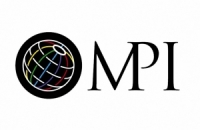I began thinking about attendee privacy issues when I started planning a family trip to Florida. My kids are 7 and 8, so of course we will be visiting Disney in all its splendor — six glorious days to be exact. And Disney may be the best example of consumer tracking. Due to their ticketing system, magic bands, fast passes, etc., they can literally track my every step through their parks, as well as my every purchase.

In theory, due to badge scanning, apps and other technologies, we can do the same with conference attendees. But how much is too much? When is a line crossed between simply gathering information to make our events better and invading privacy? And do conference attendees even care?
Once I began researching, the answers were surprisingly clear. Like Disney, event planners are not interested in an individual’s information. We are interested in trends and numbers. We want to know how many people are going to a session, not which individuals are going to the session. We may want to know if those people are web designers or are from Arkansas but not if it is Mike Smith or Danielle Jones. If you need a rule, analyze aggregate data, not individual data.
To take it a step further, event planners should be transparent in information gathering. I automatically assumed Disney would track my information, but while booking everything Disney clearly stated their tracking methods, intentions, and that “my” individual information will be protected. Again, conference planners should do the same, by letting attendees know at registration or when downloading a conference app, we will be tracking how many people attend a session but their individual information will be private — and always give them the option of opting out.

So, do conference attendees even care? It depends on the conference and the person. One conference I organize is for traffic engineers who all want to be listed on the attendee list for networking before, during and after the conference, but we have seen some skepticism at other conferences when it comes to downloading conference apps.
In short – take a note from Disney and know your audience, be clear and honest with your tracking methods and intentions for data use. But also be upfront with your client in regards to the benefits of collecting data, so the approach benefits both the group and attendees. When Disney has my information and I agree to certain applications, they “push” information (deals, line updates, scheduled events, etc.) to me as well – making it a lot easier to sit back and enjoy “the happiest place on Earth”.
Thanks,
Amy
P.S. I have taken on rapids the size of small mountains and crash-landed into the Bob Marshall Wilderness, but spending six days in Disney World – now that is a challenge! Wish me luck! ![]()
About the author:
Amy Lucke decided long ago, she would never stray far from the mountains and rivers of Montana. She loves sharing the outdoors with her two kids and spends most summer weekends in a 3-person tent with her four person family. She feels fortunate that she gets to write, create and collaborate with the smart and talented women of Meetings Northwest. Little known fact: She once traveled for 4 months on an around-the-world plane ticket.







